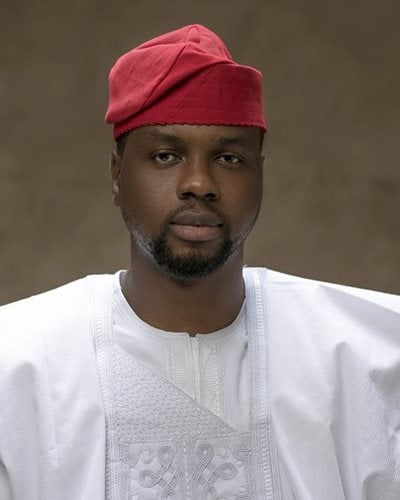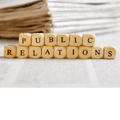What do you need to do to win an African election if you want to become a President? How do you peak to the youth and encourage them to vote during the elections? These are all questions that Adebola Williams will answer. He is known as Debola, the CEO of StateCraft in Nigeria, a political communications company. StateCraft is a governance communication firm, with a mission to galvanise a generation to make informed choices, working with government officials, public office holders and political candidates ranging from local governments to Nigeria's 2015 presidential elections.

Adebola Williams, the CEO of StateCraft in Nigeria. Image supplied.
You have been advising African presidential candidates for several years. What is the most important advice if they want to win elections in Africa?
My advice is quite simple. The candidate needs to brush up on his image and crucially, bolster his popularity among the youth.
Why did you create a business that focuses on creating and managing the political image of prospective presidents? Who was your first presidential candidate?
Our first client was the former president of Nigeria; Goodluck Jonathan. We were approached by one of his advisors who I had interacted with several times. He granted us an interview with the president for our youth magazine YNaija.
Michelle Gillie-Barnes, ATKASA - Digital Agency 12 Apr 2019
We did youth communications for the campaign of the former president. This gave us insights into the opportunity which we tapped in 2014 when we worked on the campaign of the current president Muhammadu Buhari. We were involved in the campaign that led to his first tenure.
When we were working with the former President Goodluck, we didn't view it from a business perspective we viewed it more as a necessity for youth. While working with President Buhari our work went viral. By this time we knew that this was a good and solid revenue stream and we named the business StateCraft, which means crafting nations.
Who are some of your presidential clients?
We have advised 8 presidential individuals and we have officially worked with 5 of them and these include: President of Senegal Macky Sall, President of Ghana Addo Akufo-Addo, current president of Nigeria Muhammadu Buhari, former president of Nigeria Goodluck Jonathan, Keyan presidential aspirant Raila Odinga and other individuals.
How did you create the company?
We created Red Media Africa with my co-founder Chude Jideonwo, which is a leading full-service media-content, communication, and development company behind well-known brands like YNaija, Rubbin’ Minds and The Future Awards. We created this business before we turned the age of 30.
We named the company Red because of the colour and name energise and are full of fire and life. This is the same feeling we wanted to share with our clients when speaking to the youth. We only wanted to work with companies that focused on the youth.Our company has a division on media for development where we did a lot of activism by working with organisations that want to focus on the youth, we had marches that drove advocacy in the youth. We thought that we can assist leaders to influence more youth by using our platforms and skills and make our nation better. That is how we started the business.
Wole Soyinka said his generation was wasted and he did not see any future in our generation. The question that we asked ourselves was
What if we found young people to change this hopelessness and give hope using positive peer pressure that will have a ripple effect on the continent?
Through our work, we saw the effect it created in the youth and opportunity we could use with politicians. It led to the birth of careers were born from the collaborations etc We marketed hope in a hopeless country, now we should there is hope. Hence we created StateCraft to lead in governance and communications in Africa. The role is to work with political leaders to influence the youth positively and created hope.
My role is external relations, managing high network relations, our brand equity and leading our clients who are CEOs.
What are some of the challenges you have faced in the creation of the business?
It was not easy and several times we felt that we were too We have sometimes felt we were too ahead of our time. This meant that we had to build our ideas and many people never thought that we could run a company of integrity with a strong digital and a business focusing on the youth.
There have been other challenges such as working with millennials. It is not always easy but we have managed it using a creative way to manage them and we have a 97% staff retention.
Funding is another important topic. Acquiring funding is a challenge if you lack collateral we used internal funding. We have grown the business to 80 staff.
Companies started approaching us as we could influence the young, the brands now wanted to work with us to speak to the young. That is the business was born. We also owned our own media platforms so we could create our content and manage the news.
Setting up a team is the bane of many SMEs in Africa. In hindsight, I am glad we went through that phase as it has helped us solve many of our HR problems creating systems and processes such that we can now model to an industry how to manage millennial hires. The process of having to build from scratch has helped sharpen and shape us in many ways that has helped keep our business alive 14 years on. It’s been a thrilling journey.
Any plans for business expansion into the rest of sub-Saharan Africa?
Yes as we already work in several countries, we are looking at Ghana, Rwanda, Kenya, but this will slowly and carefully.
Is political public relations a viable business in Africa?
This is a viable business as there is a large number of youth on the continent who needs to given hope by our leaders. Every prospective leader needs the youth to vote as they hold large voting power. But it is critical to understand how they communicate to enable you to communicate with them. That is the power we hold in our company, understanding the youth and how to be a part of their lives.
My partner Chude and I wrote a book titled: How to win elections in Africa.
There are a lot of players in the political public relations industry, globally and have a strong footing in Africa during elections, especially from the US and the UK. How have you managed to mitigate that? What is your competitive advantage? In-depth knowledge of a demographic that votes, the youth, shaped culture, we understand the mindset (voting power, spending, etc ), in Nigeria, our youth are 50% of building block, and we combine it with our deep know-how of media business and we have had several who have won the elections.
Are there business lessons that you can share?
An idea is an idea unless you put work to give the idea life. It is also important to keep our costs low, keep staff requirements high such as career development, have open communication internally and externally, ensure that we have growth venues, respect human relations, keep a constant and consistent eye on the numbers. Then there is always the important question: are my clients happy?


























